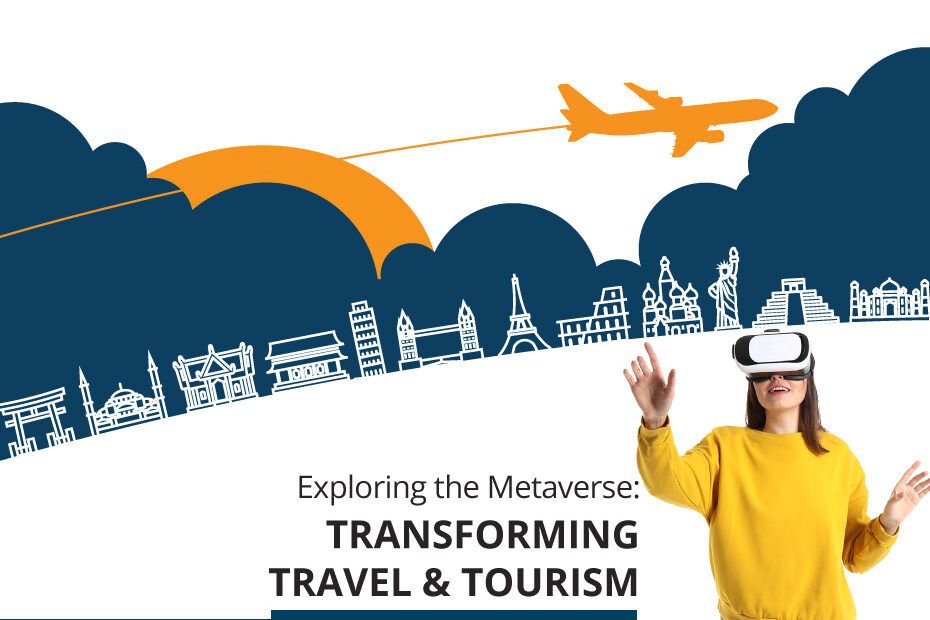In recent years, the concept of the metaverse has captured the imagination of technologists, entrepreneurs, and visionaries alike. Defined as a collective virtual shared space created by the convergence of virtually enhanced physical reality and persistent virtual spaces, the metaverse presents a wealth of opportunities for innovation across various industries. Among these, the travel and tourism sector stands to undergo a significant transformation as it embraces the potential of the metaverse. In this blog post, we’ll delve into how the metaverse is reshaping the landscape of travel and tourism, offering immersive experiences, virtual exploration, and new opportunities for engagement.
Virtual Destinations and Immersive Experiences
Imagine stepping into a virtual representation of your dream destination, where you can explore iconic landmarks, interact with locals, and immerse yourself in the culture and atmosphere—all from the comfort of your own home. The metaverse opens up possibilities for creating hyper-realistic virtual environments that replicate real-world destinations with stunning accuracy. Whether it’s wandering through the streets of Paris, snorkeling in the Great Barrier Reef, or hiking the Inca Trail to Machu Picchu, the metaverse allows travelers to experience destinations in ways that were previously unimaginable.
Virtual Travel Experiences and Tourism Activities
In addition to exploring virtual replicas of real-world destinations, the metaverse offers a platform for hosting virtual travel experiences and tourism activities. From guided tours led by knowledgeable avatars to interactive cultural workshops and virtual culinary experiences, travelers can engage in a wide range of activities without ever leaving their homes. Virtual travel agencies and tour operators can curate customized experiences tailored to individual preferences, providing access to destinations and activities that may be inaccessible in the physical world.
Social Interaction and Community Building
One of the most compelling aspects of the metaverse is its ability to facilitate social interaction and community building on a global scale. In virtual destinations and shared spaces, travelers can connect with like-minded individuals, meet new friends, and participate in social events and gatherings. Whether it’s attending virtual concerts, joining virtual travel clubs, or collaborating on virtual projects, the metaverse fosters a sense of belonging and camaraderie among travelers from diverse backgrounds and cultures.
Virtual Commerce and Economic Opportunities
As the metaverse continues to evolve, it presents new opportunities for virtual commerce and economic activity within the travel and tourism industry. Virtual real estate, virtual goods, and virtual services can be bought, sold, and traded within virtual destinations and marketplaces. Entrepreneurs and businesses can create and monetize virtual experiences, products, and services, tapping into a global market of digitally savvy consumers. From virtual souvenir shops to virtual travel agencies, the metaverse offers endless possibilities for innovation and entrepreneurship.
Conclusion
The emergence of the metaverse represents a paradigm shift in the way we experience and interact with the world around us. In the realm of travel and tourism, the metaverse holds the promise of immersive experiences, virtual exploration, and new opportunities for engagement and economic activity. As we navigate this new frontier, it’s essential to embrace innovation, creativity, and collaboration to harness the full potential of the metaverse and create a more connected, accessible, and inclusive world of travel and tourism. So, pack your virtual bags and prepare to embark on an unforgettable journey through the metaverse—the possibilities are endless!

